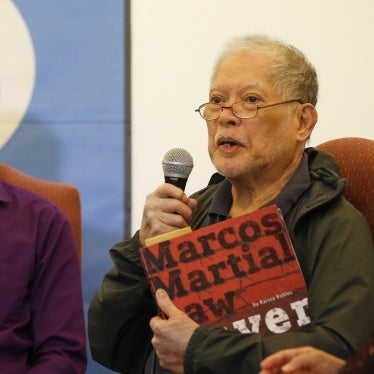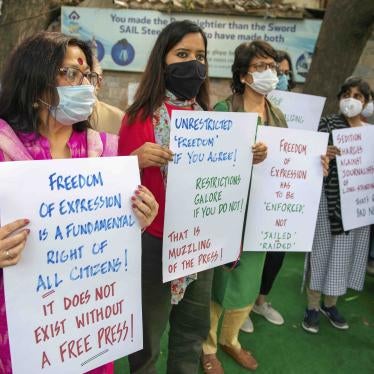If Beijing authorities are ever held to account for their conduct in the case of Cao Shunli, they will point to her transfer last week from prison to a hospital as a humanitarian gesture. But that Ms. Cao was in prison at all, and that she now lies on life support in intensive care, are retribution for her efforts to tell the true story of human rights abuses in China to the U.N. Human Rights Council.
Ms. Cao is best known for her efforts to pressure Beijing to include genuine, independent civil society input into the drafting of China's report to the U.N. during its periodic review before the rights council. Chinese authorities detained Ms. Cao at the Beijing airport when she attempted to board a flight to Geneva in September. Her whereabouts were unknown until she was formally charged in October with "picking quarrels and provoking troubles."
Throughout her months in detention, Ms. Cao's lawyer and family members have noted her worsening medical condition and fought to have her released on medical parole. Only when she became seriously ill did prison officials transfer her to a hospital. In recent days, police have pressured her family to accept medical parole for her, which would take the authorities off the hook for endangering her life.
Ms. Cao is not unique in enduring both arbitrary detention and denial of access to medical treatment. Liu Xia, wife of imprisoned 2010 Nobel Peace Prize winner Liu Xiaobo, has been held under house arrest since her husband's initial detention in December 2009. Ms. Liu has rarely been allowed to leave her apartment. Reliable reports of her deteriorating physical and mental condition have emerged over recent months. She too was hospitalized last week in Beijing for a serious heart condition. Chen Kegui, imprisoned nephew of blind legal activist Chen Guangcheng, also continues to be denied effective medical care.
As these people fight for their lives and their rights, Chinese officials are preparing to deliver in mid-March their "outcome report" to the Human Rights Council. They are unlikely to adopt any of the major recommendations put to them in their 2009 review. They will no doubt try to deflect criticism by pointing to recent semi-reforms to the system of reeducation through labor, to some aspects of the one-child policy, and to the implementation of criminal justice.
That will be only part of the story, however, as Beijing prevents activists such as Ms. Cao from participating in the review. Other governments shouldn't be fooled. Instead, they can raise the cases of Ms. Cao and others, and express concern about a broader crackdown on human rights defenders, among many other problems.
Speaking up at this time and in this venue will help ensure that those responsible can eventually be held accountable, and the efforts of those who are cynically and unjustly punished for trying to participate are not in vain.
Ms. Richardson is China director at Human Rights Watch








